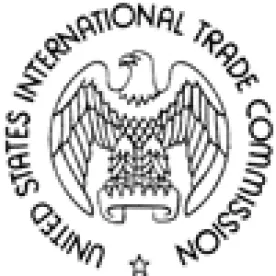The U.S. International Trade Commission (ITC) has published in the Federal Register final revisions to its rules of practice and procedure governing Section 337 investigations, the investigations that the ITC conducts under 19 U.S.C. § 1337 based on private party complaints against imported articles that allegedly violate U.S. intellectual property rights. This completes a process begun in 2015 when the ITC first initiated a proposed rulemaking for changes to its rules. The rules will go into effect for investigations instituted after June 7, 2018.
Among the changes highlighted by the ITC as most significant are:
- Requiring the ITC’s notice of investigation to explicitly identify the accused products subject to investigation.
- Clarifying that the ITC may institute multiple investigations based on a single complaint.
- Permitting an Administrative Law Judge (ALJ) to sever an investigation on motion or sua sponte to allow efficient adjudication.
- Formalizing the ITC’s pilot program for early disposition of investigations in which the ITC (not the assigned ALJ) identifies, at institution, a potentially investigation-dispositive issue that can be resolved in an expedited (100-day) proceeding.
Takeaways:
The requirement that the notice of investigation explicitly identify the accused products serves transparency, guides discovery, and frames the scope of relief if a violation is found. The new rules on institution and severance both aim to give the ITC additional tools to manage its increasing docket. The ITC’s pilot program for early disposition also is an important case management tool, and its use has appeared to gain some momentum in 2018 (see our prior post and newly-designated Inv. No. 337-TA-1109 (Notice)). However, the early disposition of cases is more than a management tool: it provides a substantive opportunity for resolution of a Section 337 investigation before proceeding with a costly hearing. Although case-dispositive motions were permitted before the ITC’s pilot program came into existence, many perceived the ability to achieve an early ruling as more theoretical than real. By formalizing the pilot program, the ITC now has an official process to point to that it can use to counter some of the recent criticisms of the Section 337 adjudicative process.





 />i
/>i

